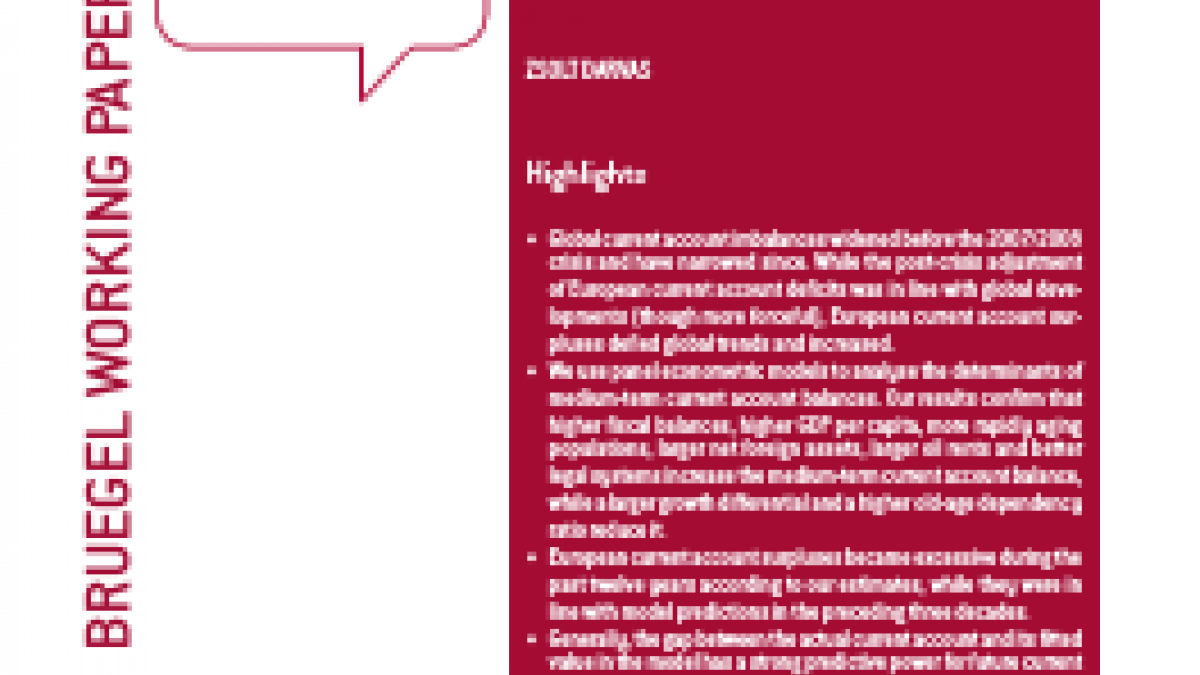Working paper
The grand divergence: global and European current account surpluses
This Working Paper assesses various explanations for the EU’s increased current account surpluses.

- Global current account imbalances widened before the 2007/2008 crisis and have narrowed since. While the post-crisis adjustment of European current account deficits was in line with global developments (though more forceful), European current account surpluses defied global trends and increased.
- We use panel econometric models to analyse the determinants of medium-term current account balances. Our results confirm that higher fiscal balances, higher GDP per capita, more rapidly aging populations, larger net foreign assets, larger oil rents and better legal systems increase the medium-term current account balance,
while a larger growth differential and a higher old-age dependency ratio reduce it. - European current account surpluses became excessive during the past twelve years according to our estimates, while they were in line with model predictions in the preceding three decades.
- Generally, the gap between the actual current account and its fitted value in the model has a strong predictive power for future current account changes. Excess deficits adjust more forcefully than excess surpluses. However, in the 2004-07 period, excess imbalances were amplified, which was followed by a forceful correction in 2008-15, with the exception of European surpluses



